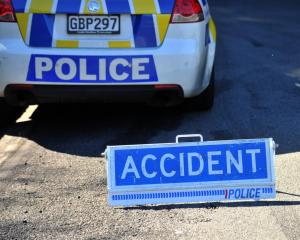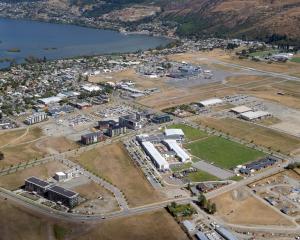
Hamish McKenzie McDonald died as a result of the injuries he sustained during the fall on September 19 last year.
Yesterday, Stephen Skelton (30), of Frankton, his climbing companion on the day, gave evidence and said the pair were attempting a route no-one had tried before - straight to the summit of Mt Crosscut.
While neither were experienced ice climbers, both had experience rock climbing and, after meeting through the New Zealand Alpine Club earlier last year, attempted their first ice climb together in June. In following months, the pair had completed about seven ice climbs together, but Mr Skelton said to his knowledge Mr McDonald had no "formal" ice training.
Mr McDonald and another companion had visited an area known as the cul-de-sac on September 9, but they "ran out of time" to climb the gully, Mr Skelton said.
On September 15, Mr McDonald and Mr Skelton returned to the same place, but decided the weather conditions were not optimal to climb that day. They returned again on September 19 with the climbing equipment, clothing, food and water they would need for the challenging terrain, he said.
They planned to walk from Homer Hut along the Milford Rd, complete a river crossing and then climb straight up Mt Crosscut. They estimated the climb could be completed in 12 hours "hut to hut".
"We knew the route was long and we had to be fast," Mr Skelton said.
The pair had not talked to anyone who had done the climb, and while they did check weather conditions with the MetService, they "didn't know anyone that we could speak to in relation to the ice and snow conditions".
"We were going to make the assessment at the time," he said. The pair set out at 3.30am, driving to Cirque Creek, and set out from Homer Hut at 5am, registering their intentions there.
The pair ascended in "sometimes dubious" conditions with soft ice causing some difficulty, taking turns at leading. They reached a cave at 1463m and noticed the ice was "dripping" and realised the screws they were using to help them climb would not hold in the ice.
The pair made the decision to abseil off the mountain from the cave and return to the Homer Hut, Mr Skelton said.
"After the decision was made, the deceased and I had lunch," he said. "The burden of having to climb through difficulties was behind us and we were joking around, quite jovial."
Mr Skelton said they noticed a sling attached to a constriction in the rock and decided to attach a second sling around the same piece of rock to anchor them while they abseiled down.
"We checked the rock to see if it was sharp so it didn't cut the webbing. It appeared OK. I wanted to take pictures, so [Mr McDonald] went first."
At about 12.45pm, Mr McDonald checked the rope and anchor again and altered the position of the karabiner so it would not open on the rock, Mr Skelton said.
"The deceased looked down and said, `Whoa, that's a long way down there'."
Mr Skelton said Mr McDonald set off a short time later while he turned around to assemble his equipment.
"I watched him go over the edge . . . I heard a groaning thud . . . the rock holding the anchor was breaking away," Mr Skelton said.
"I knew what was happening immediately. I looked up and . . . there weren't ropes any more."
Mr Skelton said he ran to the top of the cave and looked down, but could not see Mr McDonald initially, before he came into view sliding down the side of the mountain.
"I watched him pinball . . . bounce off a rock . . . before sliding to a stop. This was a long way below me."
Mr Skelton decided to climb down to assist Mr McDonald, who did not answer calls, was not moving and had lost his helmet during the fall. It took about two hours to reach Mr McDonald, where Mr Skelton applied first aid before descending to The Chapel to get help.
A helicopter arrived about 30 minutes to 45 minutes later and Mr McDonald was airlifted to Dunedin Hospital.
Mr Crerar also heard from Alistair Pearce, an avalanche forecaster for Downer EDI Works, with 24 years' experience, based at Te Anau, and received a written report from an experienced mountaineer, Geoff Wyatt.
Both men said conditions were, in their opinions, unsuitable for climbing and referred to "rotten snow". Mr Pearce said snow conditions had altered considerably in the preceding two weeks due to the spring melt.
Mr Crerar, who also had experience mountaineering, said even though snow conditions were not optimal, he did not believe that contributed to Mr McDonald's death.
He said it was possible the "freeze, thaw" nature of the icy rock was more of a contributing factor.
Mr Crerar, who will release his formal findings in the next few weeks, found Mr McDonald died from haemorrhage, shock and brain injury from a mountain fall.












